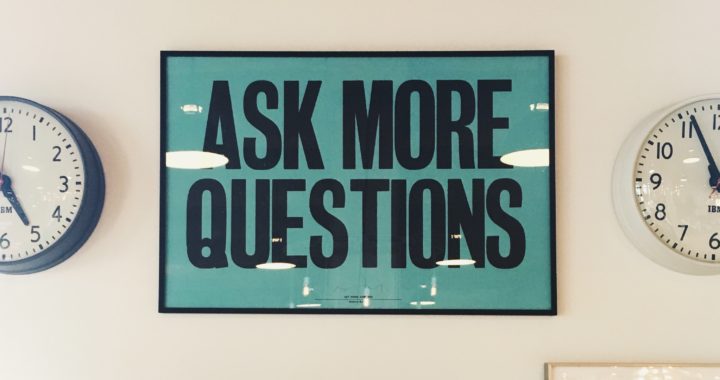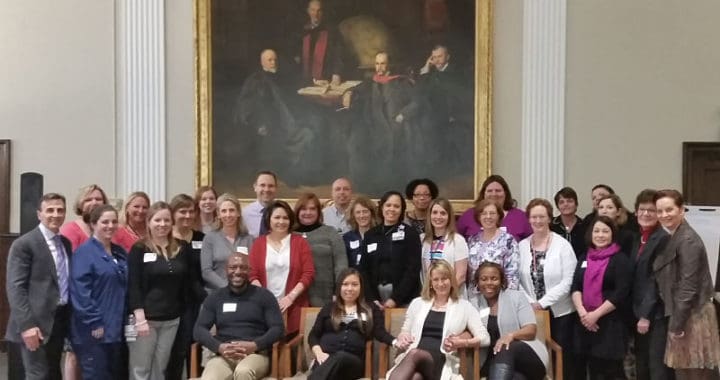Tag Archives: leadership
Use People the Way They Want to Be Used: Build Trust at Work, Part 7
Make It Safe for People to Talk to You: Build Trust at Work, Part 6
Have you ever confided in someone at work, only to discover what you shared got spread to other people?
Give People Peace of Mind: Build Trust at Work, Part 4
You just had a conversation in which you agreed to do something. You made a commitment. How do you want the other person to feel, as they walk away from you?
Data Driven Proof of the Critical Importance of Asking For Feedback: Build Trust at Work, Part 1
Ever experienced doubt about the level of trust you’ve built at work?
Do you wonder where you stand? Not just with your boss, but with other key people?
Unsettling, isn’t it?
You’re not alone.
7 Indisputable Signs You Are Your Own Toxic Boss
We hear a lot about spotting and escaping toxic bosses. Bosses who behave in ways that cripple trust, bog down progress, and hold people back from achieving their best work.
You want to run away from these people.
But what about the toxic boss in your own head? Are you willing to recognize the ways you hold yourself back?
7 Scientifically Proven Ways to Earn Trust
You want to be a leader who thrives. You can’t thrive if people don’t trust you.
What you can learn from over a million people who healed their relationships
“It is well with me only when I have a chisel in my hand.”
– Michelangelo
I don’t do well when I don’t know what to do next.
When I spin.
When I’m riddled with doubt.
I actually feel physical pain when I’m deeply uncertain about which course of action will produce my desired result.
How about you? I’d imagine you’re not a big fan of ambiguity, either. Especially when it comes to negotiating your relationships. And especially when it comes to healing relationships that have gone off track.
Here’s where I can help.
3 ways to leverage self-awareness and keep from hurting people
Do you remember when you learned to read a stop sign? Probably not. You were pretty young.
But now that you know, you can’t go back to seeing just a bunch of white squiggles on a red background, right? You’re aware.
This awareness is potent. It keeps you from hurting other people or yourself when you’re behind the wheel.
Self-awareness keeps you from hurting people, too.
Here are 3 ways to develop it:
Are you willing to grow your leadership trustworthiness?
The manager who took his manufacturing plant from lowest to highest producer nationwide within 18 months.
The VP of Finance who increased engagement by 25% and got a faltering $30 million initiative back on track.
The Nursing Director of a renowned research hospital who spearheaded a controversial, hardline “no gossip” policy…and saw employee and patient satisfaction scores increase by double digits.
The team leader who stepped away from a meeting to call his wife, and ended up having the best conversation he’d had in 10 years.
What do these people have in common?
They know their success and satisfaction – both in business and in life – depends on trust. They know trusting relationships are built by making certain choices. Specifically, choices around how they show up in their relationships with other people.
In other words, their behavior.
Are you willing to make different choices about your behavior? Choices guaranteed to build trust in your ability to lead, both at work and outside of work?
After all, you don’t need direct reports to be a leader. You’re already accountable – to yourself. You lead your own life, right?
My partner Michelle and I built a new tool for you. It’s an online trust quiz, it’s free to use, and it only takes 60 seconds. Can a 60 second quiz actually help you become a stronger leader…both of others, and of yourself?
We’ll be straight with you: building and sustaining trust is hard work. It’s not a one-and-done, plug-and-play exercise. To become a high trust leader – a high trust person – you’ve got to work at it. We all do.
But that’s what leadership’s all about, right? Working at it. If you agree, you’re in the right place, because we‘re here to support you.
We built this quiz for you – to help you take on trust, build trust, and sustain trust in the relationships you most value.
The quiz is scientifically proven. It’s actually a thumbnail sketch version of our statistically reliable valid and assessments, which are backed by 25 years of trust-focused research and global application.
Take the quiz. It’s free, and it only takes a minute – literally.
You’ll learn key behaviors you already practice to build trust. You’ll learn how to do more of what you’re already doing right!
And, you’ll learn where you can make stronger choices in how you behave. You’ll discover where to devote your focus, energy, and attention.
You’ll come away with scientifically proven tips, steps, and tools to dig in and take trust in your leadership to the next level. You can’t find these resources anywhere else. Why?
Because we’re the only trust experts around who’ve devoted our entire professional lives to trust building.
Take the quiz. Invest 60 seconds. Learn what you can do to truly connect with and bring out the best in other people…and in yourself.
Yours in trust,
Dennis Reina
5 steps to release anger and rebuild trust
I was just in Manhattan facilitating a trust workshop. Women leaders from all over the metropolitan area had rolled up their sleeves, ‘gone to work,’ and stepped into real conversations about trust.
In a powerful truth-speaking moment, one woman asked a provocative question about trust – or, rather, the lack of it:
22 Powerful Messages to Keep Trust Alive at Work
Often people tell me how they struggle to speak the right words to keep trust alive in their workplace relationships, especially in emotionally charged moments.
5 Trust Building Tools from the International Space Station
Astronaut Scott Kelly just spent an unbroken year in space, setting a U.S. record. TIME Magazine chronicled Kelly’s time aboard the International Space Station in its documentary, A Year in Space.
As I watched Kelly’s story, I was riveted. Not just by his passion and commitment, but by his remarkable capacity for trust. Trust in himself. Trust in his fellow astronauts. Trust that a million moving parts would get him safely into space and back.
Trust that when he returned, everything he left behind on Earth would still be here, waiting for him.
Among the many tools Scott Kelly gave us to develop our own capacity for trust, here are the 5 most critical:
3 Truths about Trust and Betrayal from Maria Sharapova
For 11 years, tennis player Maria Sharapova has been #1 on Forbes’ list of highest paid female athletes. During a recent press conference, we learned for the last 10 of those years she’s been taking Meldonium, a medication the World Anti-Doping Agency (WADA) has now banned as a performance-enhancing substance.
4 Questions to Build Trust and Have Your Expectations Met
Every day, from the time we wake up and our feet hit the floor, we are managing expectations. Expectations others have of us. And, expectations we have of them.
Build Trust through Broken Promises
People often tell me how much they need to be able to count on one another to come through, particularly during this period of doing more with less.
Think about it for a moment. When you do what you said you’d do, you give people concrete evidence that you can be trusted. Trust is your relationships’ adhesive. Without it, everything gets harder and takes longer.
Simple, right?
How to Tell a Difficult Truth in 7 Straightforward Steps
Telling the truth can be difficult.
In my work, people ask me to help them strengthen trust in their relationships. I work with individual leaders; other times with teams or entire organizations. Regardless of the scope of the engagement or place in the world I’m working, however, I’ve found that when it comes to trust, the same core issues surface. Among the most challenging of these issues?
8 Steps to Keep Distrust from Boiling Over
Betrayal is in the news. It seems like every time I tune in – to CNN, to The Wall Street Journal, to Twitter – people are shining the spotlight on people who’ve betrayed others through glaring, headline-grabbing offenses.
Government leaders. Police officers. CEOs. Athletes. Celebrities.
So many people are talking about the big things people do to break trust.
Yet, through more than two decades spent researching the ins and outs of trust and its shadow, betrayal, I’ve discovered this critical truth:
While betrayal can happen swiftly and dramatically, more often it creeps up on us over time.
Like water coming to a boil, distrust can occur cumulatively. It can gather force through subtle, fleeting incidents that, at first blush, may not even ‘count’ as betrayals:
“I know it shouldn’t matter, but it really upsets me that she’s late to every one of my meetings. I feel like she doesn’t value my time and energy.”
“I know I shouldn’t let it get to me, but I’m at the end of my rope. I can’t stand how he always talks over me. It’s like he cares more about his own opinion than about our relationship.”
“I wish that for once she would just let go and let me do my job. She constantly downplays my skills and experience. It’s as if what I bring to the table doesn’t even matter.”
“He never mentions my contributions. I’ve been here 5 years, and never even a ‘thank you.’ I feel like he thinks anyone could do my job. Like I’m expendable.”
Little by little, a sense of betrayal can build, as others’ behaviors chip away at trust…wear us down…cause us to question and doubt. While in the moment we may brush off each incident of the behavior, given enough time the behavioral pattern can create an impact that’s impossible to ignore. Why?
Because left unaddressed, minor, fleeting breaches of trust add up to betrayal, communicating powerful, enduring messages:
“To the other person, this relationship doesn’t matter very much.”
“My time and energy aren’t important.”
“My work effort is never enough.”
And perhaps even, “I, as a person, am expendable.”
Does this resonate with you? Have you or someone you’ve worked with closely been on the receiving end of behaviors that made you question if the other person valued their relationship with you…not just as a professional with assignments to complete, but as a person?
Let me ask you, how did this impact your work and life? Were you able to carry on as if nothing had happened? Or, might it be that your energy and confidence took a hit?
In my work – in every corner of the world – people tell me that when they experience this ‘incremental’ breach of trust, their physical and emotional well-being declines.
They suffer anything from difficultly concentrating on the work…to maintaining confidence in themselves…to trouble staying focused on the path ahead…to headaches and fatigue…to the loss of joy.
They tell me, time and time again, the impacts from incremental breaches of trust on their personal and professional lives rival the impacts of a single major betrayal of trust.
How can you keep betrayal from creeping up on you?
A second critical truth I’ve learned about the erosion of trust is the vast majority of people do not set out to hurt, let down, or disappoint others. Yet, at some point in time, they do. We all do. You don’t mean to. But at times you loose sight, become over extended, and trip up.
I do as well.
On one end of the spectrum, the impact of our behavior may cause trust to be vulnerable. On the other end, to break trust down and cause others to feel betrayed. As if what they have to bring to the world doesn’t count. As if they don’t count.
So, here are 8 steps to avoid breaching trust and causing others to feel betrayed:
- Recognize that your behavior matters and has an impact on people.
- Set intentions for how you aspire to bring yourself to others. This clarity will prepare you to have a positive impact and be experienced as trustworthy.
- Remember what it is that you have to bring to others in your relationships.
- Consider how your current behavior aligns with your intentions.
- Observe where you may be tripping up and letting others down. Reflect on how you can redirect.
- Take responsibility for your actions and their impacts.
- Know that betrayal can be a teacher. At times, you can learn the most about trust from its loss.
- Extend compassion. 90% of the behaviors that impact trust are unconscious habits and knee-jerk reactions. Don’t beat yourself up if it takes time to shift ingrained practices.
And remember, should you discover that you’ve unintentionally let someone down, resulting in a sense of distrust in one of your relationships…there is a path forward.
Yours in trust,
Michelle Reina
A Leader’s Guide to Asking for Support
How do people develop into transformational leaders? Is it through coaching? Training? Educating?
According to Bank of Maroda Chairman Ravi Venkatesan in his insightful piece Building leadership: Unleash the disrupters, it’s none of those things:
Do your relationships have cracks?
Over the years, people have asked us why we called our book Trust and Betrayal in the Workplace.
Betrayal is a strong word. It’s complex and emotionally provocative. For some, it’s downright off-putting.
“When you used the word betrayal,” people have said, “surely you knew you’d risk losing potential readers. If you wanted to make a contribution – to make people’s lives better – why would you use a word that could make people uncomfortable? Or, even push them away from your message?”
The truth?




















